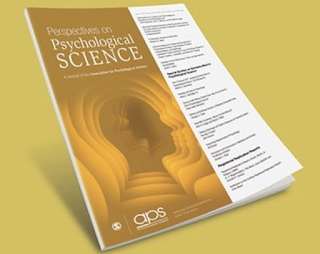Bad-faith academic publishing-the case of “Questioning the Value of Reflexivity Statements in Research”
It is only February and we already have another case of “how did this get through peer review??!!” in social science #highered.
It is worth checking in on Twitter as the quote-Tweets on one of the authors’ posts (who disabled direct comments on his Tweet), more than 200 at the time of writing, provide an excellent peer review of the article from a wide range of academics.
But is not simply a case of academic debate where authors publish an article and then look forward to engaging in meaningful debates and discussions.
Positionality is critical in naming privilege and avoiding perpetuating racist/w. supremacists assumptions. Do the opposite of this👇🏽. https://t.co/1PJSZWT5IP
— Awanui Te Huia (@AwanuiTH) February 20, 2023
As a newly minted Dr of the social sciences, any claim of the ‘universalism’ of science is a thinly veiled attempt to uphold the dominance of white epistemologies. Malarkey. https://t.co/qs5BtCFwsu
— Avery Smith (@Avery_Smit) February 20, 2023
Some of my readers may remember the debate around the dreadful article in defense of colonialism that Third World Quarterly published a few years ago and subsequent critique about academic neocolonialism and clickbait in commercial journal publishing.I struggle to understand how this was published. It's a classic straw person argument that completely fails to understand what position statements are.
— Dr Erin O'Donnell @ezzyod@mastodon.au (@EzzyOD) February 19, 2023
Reads like high schoolers trying to write a 'take down' article - no depth, just bluster. https://t.co/kEK0legrFy
There are similarities which will once again raise questions about the limits of traditional academic peer review and the idea that once an article is published in a reputable journal “we” need to discuss it or engage with it because it is a valid contribution to the debates.
At the end of the abstract there is already a big red flag when the authors state that the aim of the article is to “protect the freedom of scholarly inputs”. Well, it turns out the authors met through the Heterodox Academy (HxA) and right away we are leaving the scientific sector and enter the world of (predominantly) North American “culture wars” territory.
In 2021 higher education writer John Warner wrote for Inside Higher Ed:
I wonder if some of the HxA activities are the proverbial whistling past the graveyard, even as the corpses rise from their crypts and lurch toward snacking on the living. Are you as worried as I am about the existential threats to nonelite higher education, particularly public higher education?But is does not stop there. The lead author published I worry about the Finlandisation of America for UnHerd (“Widespread self-censorship was another key feature of Finlandization”). and complained How ‘social justice’ is corrupting science in the New York Post, complete with a big photo of Steven Pinker...
I’m going to stop being irked, I think, because let’s face it, none of this matters. In light of what’s happening in the wider world, the work of HxA is truly “academic” in the “of only theoretical interest” part of the definition.
Another author is affiliated to Holy Family University, a private Catholic college, and is apparently unaware of the irony that this carries when he argues for “objective” science.
And a quick scroll through the third author’s Twitter feed reveals retweeted content from your favorite “controversial” Stanford scientist, complete with a reference to the “laptop class”.
The fact that none of the authors is a psychologist suggests that the editor(s) of a psychological journal accepted their piece with virality of content and “culture wars” discussions in mind, not purely on their academic merits. That all four of the authors are based in the Global North (three of them who can be read as white men in the US and one Australian woman in Germany) is just another small part of the problematic “positionality” of this article.
But there is a bigger discussion lurking in the back: How fragile traditional academic peer review has become and how little it takes to hijack the process for short term culture war gains rather than progress in science.
Perhaps there was editorial and peer review (the editor for this article is a 71-year old white male psychologist from Germany from the same university where one of the authors is completing her PhD and the “action editor” a professor in marketing), but given the immediate global critique from digital peers it is not enough to point at one or two reviewers who waved the manuscript through.
For the time being it is also important to not fall into the trap (which I am on the verge of doing myself) of providing even more “oxygen of amplification” and calls to debate the article on “merit” and not on the authors’ affiliations and political networks behind it.
It is an article written in bad faith, with clicks in mind and a broader project to legitimize a false “viewpoint diversity” agenda through articles in traditional academic journals.
Editors and reviewers also need to become more aware and more critical in rejecting such attempts to roll back the small progress in emancipatory research and writing that has started to flourish in social sciences.





Comments
Post a Comment